In 2017 UiT established the Arctic Centre for Sustainable Energy (ARC). ARC is an interdisciplinary centre focusing on Arctic challenges and conditions within renewable
The center’s main objectives are:
Please send us an email if you want to subscribe to ARC's informal, bi-weekly newsletter Short news.
The Board is ARC's main decision-making body. The Board consists of representatives (deans, department heads or senior scientific staff) from the four active faculties, as well as a representative from the rector team at UiT.
The day-to-day management is done by the ARC leader, who has the overall responsibility and management function for the academic and administrative activities of the centre. The ARC leader is supported by the ARC project coordinator.
The Management Team consists of seven Research coordinators and their deputies. They are responsible for the coordination of the activities and projects that fall within ARC's seven research areas.
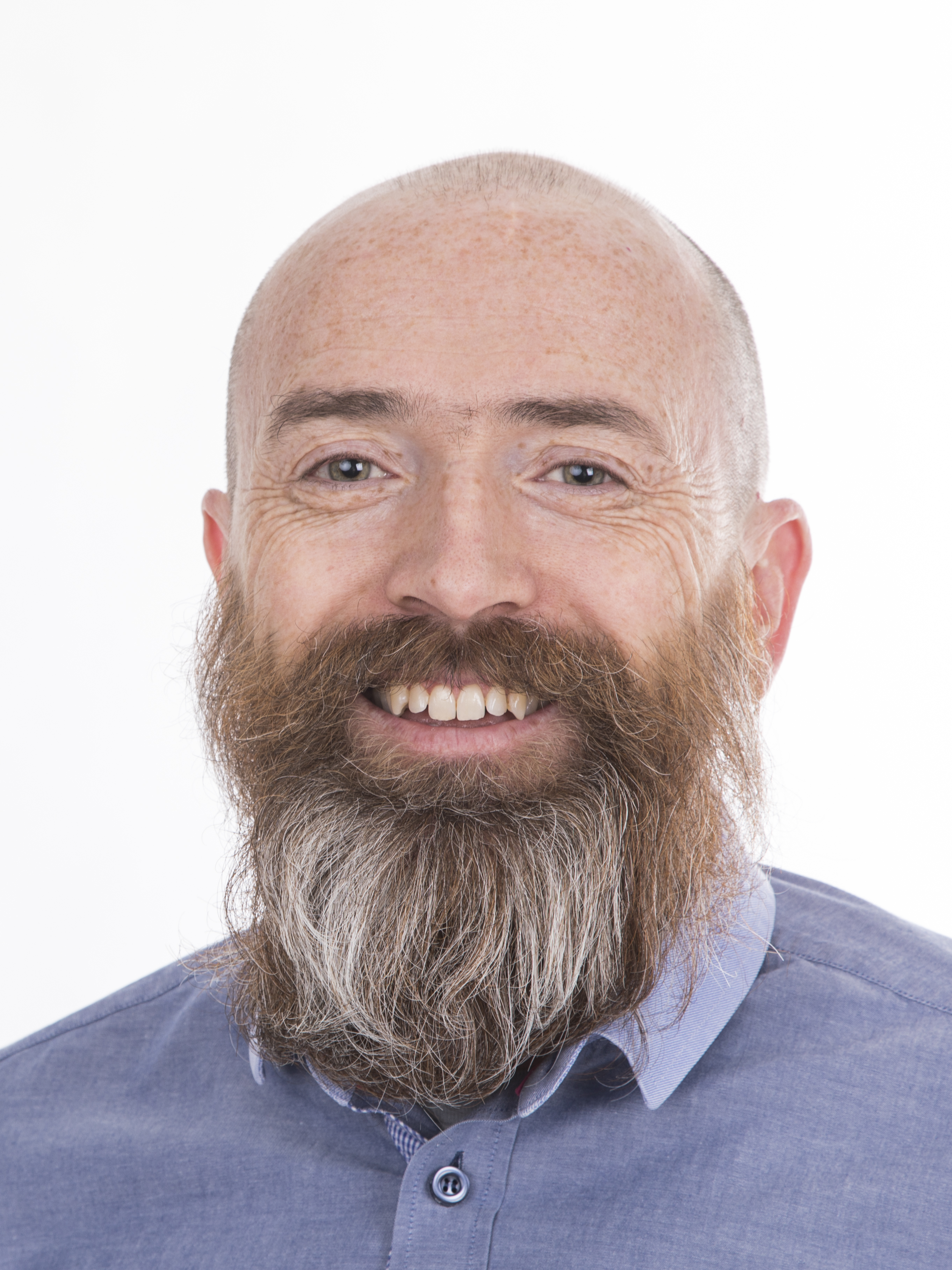
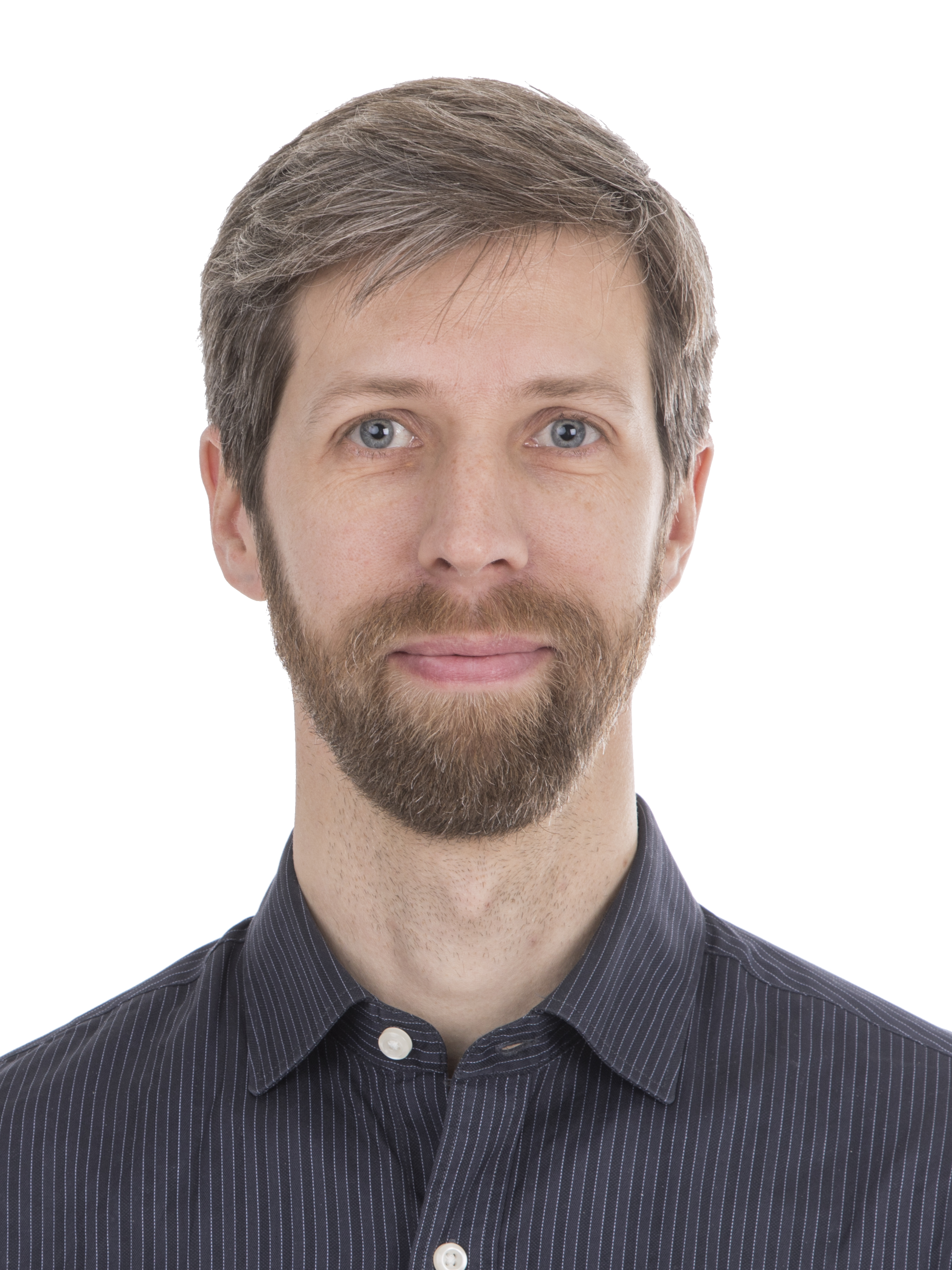
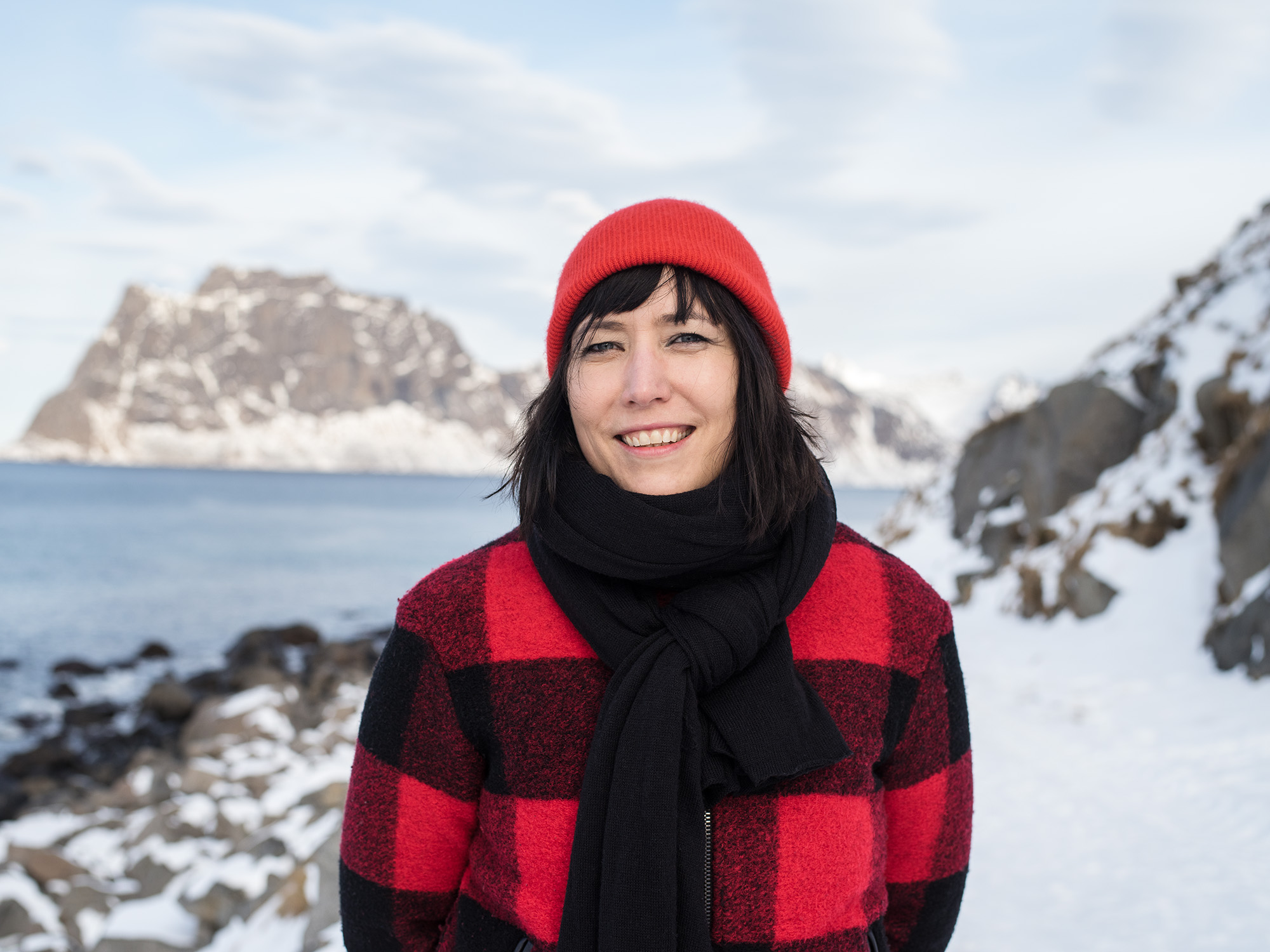
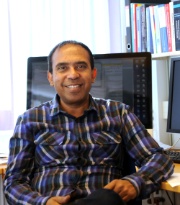
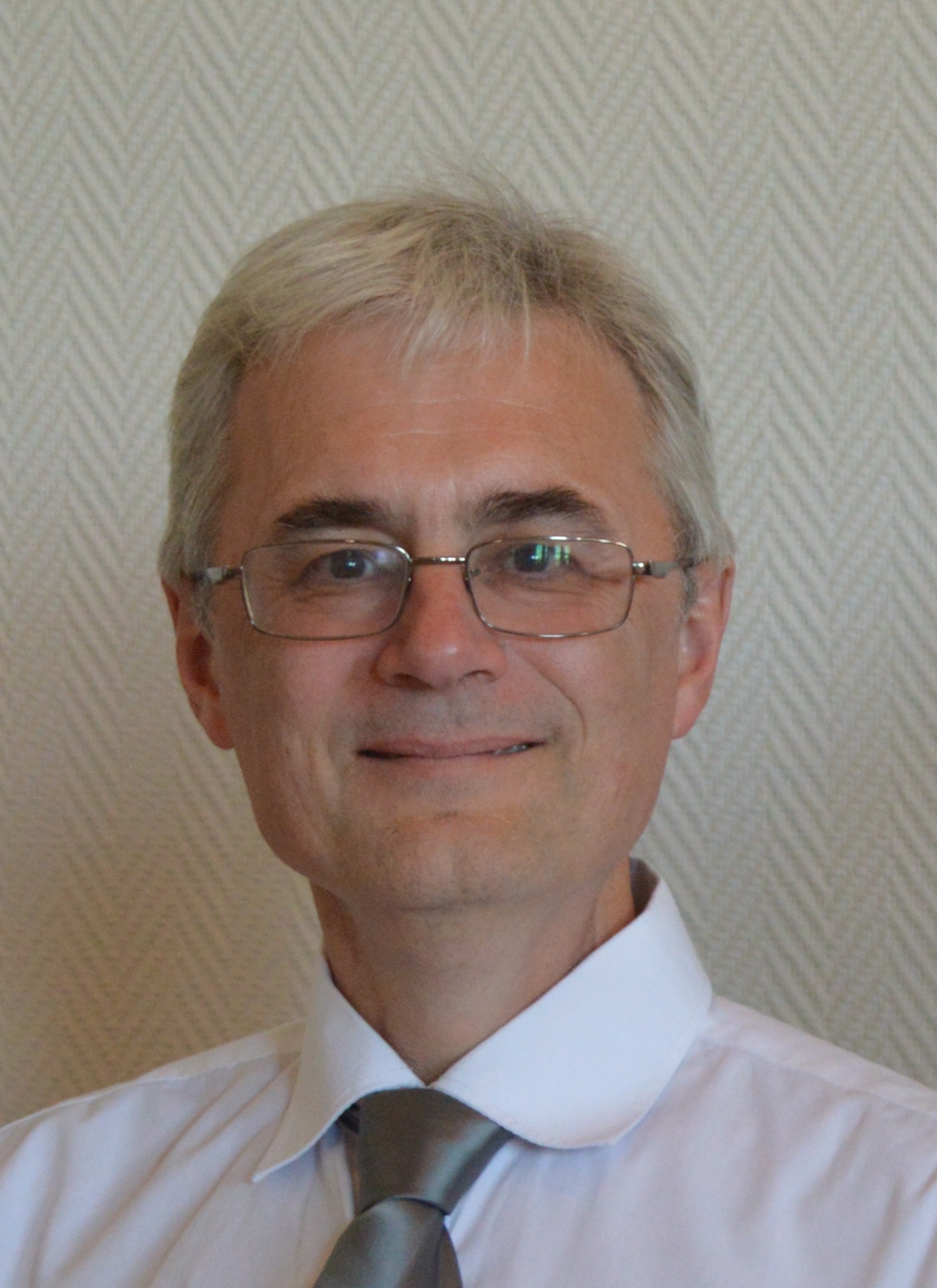
Latest news | 21 February 2023
Longyearbyen henter erfaringer fra Smart Senja 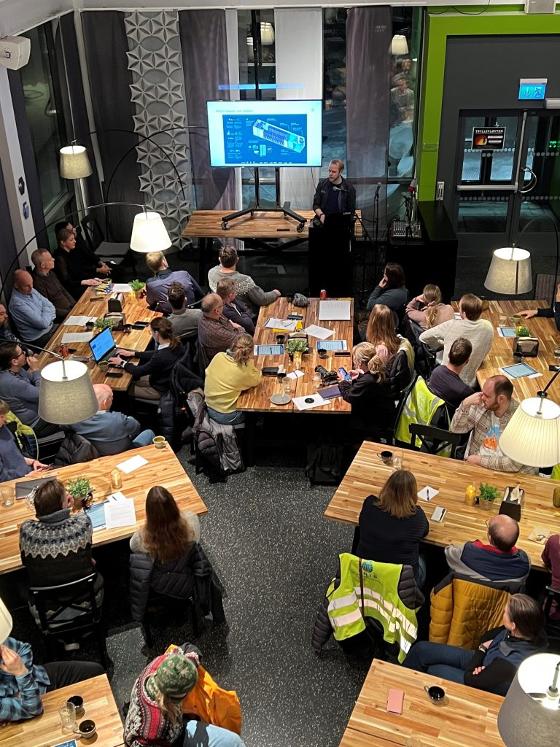
Det var stort oppmøte når Longyearbyen Lokalstyre i forrige uke, i samarbeid med samfunnsvitere på UiT, arrangerte energikafe etter modell fra Smart Senja. Longyearbyen står overfor en omfattende energiomstilling, og med energikafeen ønsket lokalstyret å skape en sterkere lokal involvering og forankring til denne prosessen.
Trykk her for å lese mer om energikafeen og hvilke tanker de to involverte masterstudentene Anna B. Olerud og Christian T. Berlinger gjør seg om energidiskusjonene i lokalsamfunnet.

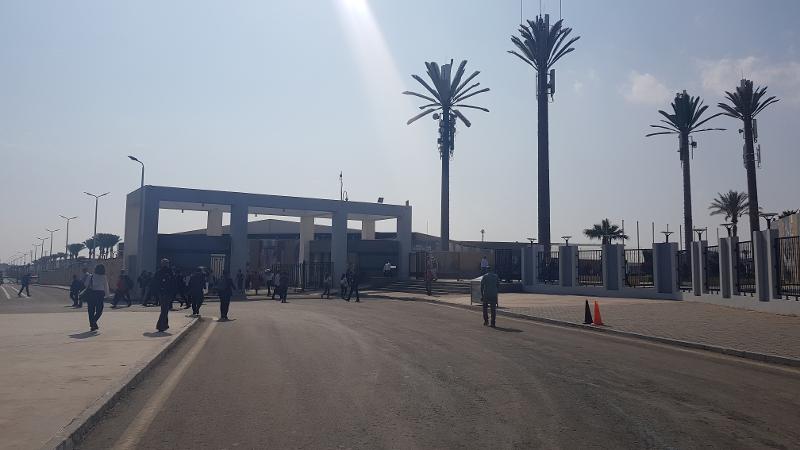
23.11.2022 - Fyrtårn Project SusSTEMED
18.11.2022 - ARC Digitalization seminar
12.10.2022 - ARC mini symposium
15.06.2022 - ARC seminar Toril Ringholm
07.06.2022 - ARC seminar - Chiara Bordin
18.05.2022 - ARC seminar - Katja Karppinen
09.05.2022 - ARC seminar - Clara Good
07.04.2022 - ARC seminar - Hoai Phuong Ha
31.03.2022 - ARC seminar - Berit Kristoffersen
29.03.2022 - ARC seminar - Filippo Bianchi
24.03.2022 - ARC seminar - Hans C. Bernstein
18.02.2022 - Presentation: The ARC Methodology
15.02.2022 - ARC seminar - Jennifer Claire Hayward
10.02.2022 - ARC seminar - Matteo Chiesa
Research coordinator: Hoai Phuong Ha
Deputy: Filippo Maria Bianchi
ARC researchers in the Digitalization area work on finding solutions to some of the challenges that the development of renewable energy systems bring about, while at the same time making use of the opportunities that technology shifts present.
For instance, renewable energy systems typically produce varying loads, which in turn complicates voltage stability and the capacity of the electrical distribution grid. On the other hand, new inventions such as smart metering and digital algorithms can be used to optimize electricity usage and open new energy markets. Digital technologies are key to both.
Digitalization also contributes to climate neutrality goals via advanced climate and environmental observation. These observations are needed to understand and predict the flux of greenhouse gases and air pollutants. However, according to the European Green Deal challenges, in-situ measurements for hotspots with strong emissions of greenhouse gases and air pollutants are still lacking. ARC-researchers respond directly to this by studying and developing energy-efficient autonomous in-situ measurement technologies.
Other members
Chiara Bordin
Qixia Zhang
Michele Guerrera
Jonas Berg Hansen
Hoang Loc La
Silvia Anna Cordieri
Torgeir Sulheim
Key publications
See overview of Hoai Phuong Ha published articles here
See overview of Filippo Maria Bianchi published articles here
Ongoing projects and activities
International:
National:
Research coordinator: Bjarte Hoff
Deputy:
In the research area of eSystems, ARC scientists are working on the future electric energy systems and conversion technology. Electrification of our society creates new types of energy systems that come with new challenges.
In electric transport, the introduction of components like batteries, hydrogen fuel cells, and electric motors changes the on-board energy system in electric vehicles, ships, and aircrafts. In the electricity grid, the introduction of distributed and intermittent renewable energy changes our grid with local production and power electronic converters. These alter the grid's behaviour and challenge its stability and protection schemes. Power electronic converters are a key enabler for electrification and control of electric power, hence an important research activity within eSystems.
eSystems contribute to climate neutrality goals through electrification and preparing energy systems for an increased amount of renewable energy and sustainable energy carriers like hydrogen. With electric energy from renewable sources, fossil fuel can be replaced by more sustainable solutions.
Other members
Charu Sharma
Pawan Sharma
Nasrin Kianpoor
Umer Sohail
Hussein Al-Sallami
Martin Haug
Koen van Greevenbroek
Key publications
See overview of Bjarte Hoff's published articles here.
Ongoing projects and activities
International
National:
Research coordinator: Hans C. Bernstein
Deputy: Katja Karppinen
Science and technology that address the climate crisis are now a priority for all, but Arctic societies are unique stakeholders because we are experiencing the most rapid changes on the planet. Atmospheric carbon dioxide levels are at a historic high, recently surpassing 400 ppm for the first time in human history.
We are also contending with historic atmospheric methane gas concentrations, which has 84-times greater heat trapping effects than carbon dioxide. The people of the Arctic – together with the world – have reached the understanding that emission reductions are necessary for sustainability but we must also invest in new technologies for carbon capture, sequestration and utilization. Biological organisms, such as plants, algae and bacteria, can capture carbon and integrate into their metabolites and biomass. In plants, the molecules are mostly integrated as sugar molecules into cell wall components, such as cellulose. The annual production of cellulose through photosynthesis is estimated to be 15 x 1012 tons, forming a major sink and reservoir for carbon that can be utilized for sustainable bioenergy production.
How will ARC provide solutions? We support research, education and industrial cooperation with the ultimate goal of controlling the accumulation of carbon from the atmosphere and aid its utilization for bioenergy solutions. We believe that fostering fundamental science and innovation together with raising public awareness will lead to measurable action. ARC’s mission is unique because of its focus on social and economic drivers in high latitude societies.
Other members
Kirsten Krause
Grzegorz Konert
Sebastian Petters
Michael Dills
Hanna Schweitzer
Muhammad Furwan Ashraf
Corine Faehn
Hilary Edema
Nerea Aalto
Key publications
See overview of Hans C. Bernstein's published articles here
See overview of Katja Karppinen's published articles here
Ongoing projects and activities
Research coordinator: Abhik Ghosh
Deputy: Matteo Chiesa
Material technology is one of the columns on which a new future is built. The properties of a new material can be the difference to make or break a new concept. In the world of renewable energy, material science has been one of the main reasons that solar cell technology has become so efficient and cheap at the same time.
ARC scientists in the Advanced materials area study the material deployed in renewable energy technologies, improve already existing ones and help develop new materials that will be used in future low-carbon societies.
Other members
Hao Chen
Tuza Olukan
Simon Larsen
Abraham Alemayehu
Abdulrahman Saleh Qaid Alhagri
Karoline Ingebrigtsen
Odin Foldvik Eikeland
Krister Johanessen
Key publications
See overview of Abhik Ghosh's published articles here
See overview of Matteo Chiesa's published articles here
Ongoing projects and activities
About the Research coordinator
Abhik Ghosh grew up in India and did his Ph.D. at the University of Minnesota under the tutelage of Paul G. Gassman, while also extensively collaborating with Jan Almlöf (formerly a professor at UiO and a professor II at UiT). After postdoctoral stints in bioinorganic chemistry with Larry Que and David Bocian, he took up a faculty position at UiT in 1996, where he has been full professor since 2000. He was a Senior Fellow of the San Diego Supercomputer Center (1997-2004) and on several occasions a Visiting Professor at the University of Auckland, New Zealand (2006-2015). Since 2021, he has led the UiT’s Center for Sustainable STEM Education.
Abhik has served on the editorial boards of the Journal of Biological Inorganic Chemistry, the Journal of Inorganic Biochemistry, and the Journal of Porphyrins and Phthalocyanines. He edited the popular science book Letters to a Young Chemist (Wiley, 2011) and coauthored the textbook Arrow Pushing in Inorganic Chemistry: A Logical Approach to the Chemistry of the Main Group Elements (Wiley, 2014); the latter won the 2015 PROSE Award for Best Textbook in the Mathematical and Physical Sciences. In 2022, he became a member of the European Academy of Sciences and also received the Hans Fischer Career Award for Lifetime Achievements in Porphyrin Chemistry. As a gay chemist, Abhik has been involved in a variety of projects aimed at diversifying chemistry.
Abhik’s research interests center broadly around soft materials based on porphyrin analogues and their applications to both medicine and renewable energy. Current projects in his laboratory focus on
(a) synthetic method development
(b) photodynamic therapy and cancer theranostics
(c) dye-sensitized solar cells
(d) fluorinated materials
(e) functionalization of low-dimensional, especially 2D, materials, and
(f) high- and low-valent transition metal compounds and their applications to catalysis and renewable energy
Research coordinator: Tobias Boström
Deputy: tba
In total, the sun provides about 10 000 times the amount of energy that is used globally in a year. If we were to store all the solar energy from one hour of incoming sunshine, we would have enough power to run the world for one year! And this is just solar power. If we add wind power, hydropower, and tidal forces to the list, it quickly becomes clear that establishing a modern society based on renewable sources is not a question of possibility – it is a matter of solving practical issues.
In the area of Power generation, ARC researchers look at how we can solve the practical issues that stem from both the production and consumption of renewable energy.
Key publications
Projects and activities
Research coordinator: Berit Kristoffersen
Deupty: Jennifer Clare Heyward
The transition from a global society dependent on oil towards a sustainable society based upon renewable energy is one of the biggest challenges of our time. Such a process brings up everything from ethical to societal questions that need to be considered, in order to build a solid foundation for the solutions that are being implemented.
Philosophy and social sciences are important tools to be one step ahead of the development, and guide and coordinate technological and social evolution. They lay down the stepping stones that are needed to cross the boundaries between theory and practice when exploring new territories. And are key to achieve the social and international cooperation that is needed for success on a larger scale.
Other members
Toril Merete Ringholm
Hans Kristian Hernes
Øyvind Stokke
Anna-Karin Margareta Andersson
Marie Koksvik Thorsen
Inger Helene Svartdal
Erik W. Strømsheim
Magnus E. Eilertsen
Cladua. S. W. Cheng
Key publications
See overview of Berit Kristoffersen's published articles here
See overview of Jennifer Clare Heyward's published articles here
Ongoing projects and activities
Research coordinator: Clara Good
Deputy: Mohamad Mustafa
We are all familiar with the electric car. But did you know that there is an electric fishing boat in Senja, and two electric airplanes in Bardu? ARC is testing and developing further possibilities within low carbon transport at these sites. We need to develop more then just ground based transport alternatives, to achieve a complete transition to an oil free society.
Sea- and air alternatives are as important in the bigger picture. The two first electric airplanes to be tested in an arctic environment were recently delivered to an airbase in Bardu, North Norway. They were baptised in the norwegian soda ‘Solo’, and taken for a first spin on the tarmac (video). But this project is not only about testing the capability of the airplanes. It is about testing the whole chain of components required to make them run on locally produced electricity. The hangar walls have been covered with solar panels and and the energy is stored on site, so that the planes can be charged without using power from the external grid. The project can be seen as a protoype of a renewable energy airport, that can be scaled up to commercial sizes, based on the information from this test.
The same goes for the fishing boat, where the bottle neck is the need for highly efficient charging stations. A boat can carry a lot of batteries, in contrast to an airplane, and the challenge is to ensure that it charges fast enough to be used in a commercial fishing schedule. This requires rethinking the backbone of the electrical system, in our case for some traditional fishing townships at Senja.
Other members
Bright Adu-Gyamfi
Key publications
See overview of Clara Good's published articles here
See overview of Mohamad Mustafa's published articles here
Ongoing projects and activities
UiT offers courses and study programs within the topic of renewable energy through ARC. We are working for a “green transition” of UiT’s study portfolio where relevant. Below is an overview of some of the courses offered, sorted according to ARC's research areas.
Study programs
Fornybar energi, sivilingeniør – 5-årig master, campus Tromsø
Klima og miljøovervåkning, sivilingeniør – 5-årig master, campus Tromsø
INF-3210 Energy Informatics - Green Computing – 10 ECTS, Master level course
INF-8210 Energy Informatics - Green Computing – 10 ECTS, PhD level course
INF-3010 Energy Informatics – Smart Energy and Power Systems Modelling – 10 ECTS, Master level, campus Tromsø
INF-8010 Energy Informatics – Smart Energy and Power Systems Modelling – 10 ECTS, PhD level, campus Tromsø
Special curriculums on machine learning with a focus on energy analytics applications are available on demand. If interested, please contact Filippo M. Bianchi.
Electrical Engineering – master, campus Narvik
Bærekraftig teknologi, ingeniør – bachelor, campus Tromsø
ELE-3610 Power System Stability – 5 ECTS, campus Narvik
ELE-3604 Distributed Generation and Micro Grids: Concepts and Roles – 5 ECTS, campus Narvik
STE6287: Operation and Control of Power Systems – 5 ECTS, campus Narvik
TEK-2007 Engineering design for sustainability in the Arctic
SIK-2011 Miljøforurensing og konsekvensanalyser
Biologi – bachelor, campus Tromsø
Bioteknologi – bachelor, campus Tromsø
Biology – master, campus Tromsø
Marine Biotechnology – master, campus Tromsø
BIO-2009 Green Biotechnology and Bioenergy – 10 ECTS, campus Tromsø, Fall
FYS-2018 Global climate change – 10 ECTS, campus Tromsø, Spring
BIO-3615 Quantitative Microbial Biotechnology I -10 ECTS, capus Tromsø, Fall
BIO-8606, Basic and applied microalgae II 10 ECTS, campus Tromsø, Fall
Fornybar energi, sivilingeniør – 5-årig master, campus Tromsø
Klima og miljøovervåkning, sivilingeniør – 5-årig master, campus Tromsø
Bærekraftig teknologi, ingeniør – bachelor, campus Tromsø
ITE1840 Energi og miljø – 10 stp, campus Narvik
FYS-2017 Sustainable energy – 10 ECTS, campus Tromsø
EOM-3010 Project Paper in Energy, Climate and Environment – 10 ECTS, campus Tromsø
FYS-3028 Solar energy and energy storage – 10 ECTS, campus Tromsø
INF-3910-2 Computer Science Seminar: Green Computing – 10 ECTS, campus Tromsø
EOM-3901 Master’s Thesis in Energy, Climate and Environment – 30 ECTS
ELE-3601 Renewable Energy – Generation and Conversion – 5 ECTS, campus Narvik
INF-3010 Energy Informatics –Smart Energy and Power Systems Modelling – 10 ECTS, campus Tromsø
Filosofi – bachelor, campus Tromsø
Filosofi – master, campus Tromsø
FIL-1024 Miljøfilosofi – 10 ECTS, campus Tromsø
FIL-2037 Bioteknologi og etikk – 10 ECTS, campus Tromsø
FIL-2035 Naturfilosofi – 10 ECTS, campus Tromsø
FIL-2038 Global rettferdighet: migrasjon, klima og ulikhet – 10 ECTS, campus Tromsø
FIL-2039 Mat- og klimafilosofi – 10 ECTS, campus Tromsø
STV-3002 Miljøpolitikk - 10 ECTS, campus Tromsø
SVF-3006 Energiomstilling: fra teori til praksis – 10 ECTS, campus Tromsø
Chen, Hao: “Data-driven Arctic wind energy analysis by statistical and machine learning approaches”, A dissertation for the degree of Philosophiae Doctor, UiT The Arctic University of Norway, Department of Technology and Science – October 2022
Aalto, Nerea Johanna: "Atmospheric CO2 drawdown, community dynamics and selection of surface microbiomes in marine cold-water ecosystems", A dissertation for the degree of Philosophiae Doctor, UiT The Arctic University of Norway, Department of Arctic and Marine Biology – October 2022
Jin, Jia Yi: "Study of Atmospheric Ice Accretion on Wind Turbine Blades", A dissertation for the degree of Philosophiae Doctor, UiT The Arctic University of Norway, Department of Physics and Technology – September 2021
Osvik, Renate Døving: "Bioprospecting of marine phytoplankton from large scale cultivation - Effect of culture conditions on bioactivity and biochemistry of the diatom Porosira glacialis", A dissertation for the degree of Philosophiae Doctor, UiT The Arctic University of Norway, Faculty of Biosciences, Fisheries and Economics – June 2021
Dalheim, Lars: "Porosira glacialis as a possible source of lipids for human consumption and aquaculture feed", A dissertation for the degree of Philosophiae Doctor, UiT The Arctic University of Norway, Faculty of Biosciences, Fisheries and Economics – May 2021
Svenning, Jon Brage: "Towards mass cultivation of diatoms as a source of marine lipids", A dissertation for the degree of Philosophiae Doctor, UiT The Arctic University of Norway, Faculty of Biosciences, Fisheries and Economics – December 2020
Obst, Marc F.: "Homogeneous Metal-Mediated Carboxylation with Carbon Dioxide", A dissertation for the degree of Philosophiae Doctor, UiT The Arctic University of Norway, Department of Physics and Technology – September 2020
Pavlovic, Ljiljana: "Towards Enantioselective Carboxylation and Hydrogenation Reactions (Quantum Chemical Modelling of Homogeneous Reactions)", A dissertation for the degree of Philosophiae Doctor, UiT The Arctic University of Norway, Department of Physics and Technology – August 2020
Lai, Chia-Yun: “Quantitatively reinterpreting atomic force microscopy via the data science paradigm”, A dissertation for the degree of Philosophiae Doctor, UiT The Arctic University of Norway, Department of Physics and Technology – November 2019
Babar, Bilal: “Solar resource assessment at high latitude regions”, A dissertation for the degree of Philosophiae Doctor, UiT The Arctic University of Norway, Department of Physics and Technology – January 2019
Tran, Vi Ngoc-Nha, “Modeling Energy Consumption of Computing Systems: from Homogeneous to Heterogeneous Systems”, A dissertation for the degree of Philosophiae Doctor, UiT The Arctic University of Norway, Department of Computer Science – September 2018
Nguyen, Van Nhan: ”Advancing Deep Learning for Automatic Autonomous Vision-based Power Line Inspection”, A dissertation for the degree of Philosophiae Doctor, UiT The Arctic University of Norway, Department of Physics and Technology – August 2019
Grebstad, Karoline Rustad: "The transition to sustainable aviation in Northern Norway", Master's thesis in Political Science, UiT The Arctic University of Norway, Department of Social Science – November 2022
Ørjavik, Ola Wang: "Wind energy and economic assessment of a wind farm at Senja", Master’s thesis in Energy, Climate and Environment, UiT The Arctic University of Norway, Department of Physics and Technology – June 2022
Bour, Carlotte: "Genome-wide identification and gene expression analysis of major pectinase enzymes from bilberry (Vaccinium myrtillus L.)", Master's thesis in Erasmus-Mundus Master's Programme in Plant Breeding, University of Helsinki, Department of Agricultural Science/UiT The Arctic University of Tromsø, Deparment of Arctic and Marine Biology – May 2022
Evensberget, Solveig: "Energy and security in transition", Master's thesis in Political Science, UiT The Arctic University of Norway, Department of Social Sciences – November 2021
Odongo, Christopher: "Feasibility Study of Hydrogen Production from Wind Energy in Narvik", Master's thesis in Industrial Engineering, UiT The Arctic University of Norway, Department of Industrial Engineering – May 2021
Mathiesen, Vemund Nygaard: "Performance and Future Potential of Social Photovoltaics in Arctic Settlements", Master’s thesis in Energy, Climate and Environment, UiT The Arctic University of Norway, Department of Physics and Technology – December 2020
Løvvold, Ina: "Pumped Hydropower Conversion and Renewable Hybrid Power Plants at Senja", Master’s thesis in Energy, Climate and Environment, UiT The Arctic University of Norway, Department of Physics and Technology – September 2020
Witt, Hannes: "Investigating the viability of lithium-ion battery - fuel cell hybrid systems - A case study for Greenland and Qatar", Master’s thesis in Energy, Climate and Environment, UiT The Arctic University of Norway, Department of Physics and Technology – June 2020
Enoksen, Thomas Oxlund: "Evaluation of a Solar Plant at Longyearbyen", Master’s thesis in Energy, Climate and Environment, UiT The Arctic University of Norway, Department of Physics and Technology – June 2020
Øyen, Frode Jacobsen: "CO2 i sjø og på land. En lokal studie med fokus på fabrikkrøyk og miljø", Mastergrad i marin bioteknologi, UIT Norges arktiske universitet, Fakultetet for biovitenskap, fiskeri og økonomi – november 2019
Crăciun, Cosmin Radu: "Data Management for Nudged Green Transportation”, Master’s thesis in Computer Science, UiT The Arctic University of Norway, Department of Computer Science – May 2019
Jemea, Lady Limunga: “Data Analysis and Nudging for Green Transportation”, Master’s thesis in Computer Science, UiT The Arctic University of Norway, Department of Computer Science – May 2019
Wallann, Håkon: "RoadAhead – Removing Uncertainty in Travel. Creating a Data Warehouse for Green Transportation Nudging”, Master’s thesis in Computer Science, UiT The Arctic University of Norway, Department of Computer Science – May 2019
Fagerli, Kristin: "Forbedret tilstandsovervåkning av bærelager i Sjona kraftverk ved digitalisering", Mastergradsoppgave i teknologi – energi, klima og miljø, UiT Norges Arktiske universitet, Institutt for fysikk og teknologi – juni 2019
Jacobsen, Tobias Thørnquist: “Distributed Renewable Generation and Power Flow Control to Improve Power Quality at Northern Senja, Norway”, Master’s thesis in Technology – energy, climate and environment, UiT The Arctic University of Norway, Department of Physics and Technology – June 2019
Eikeland, Odin Foldvik: “Investigation of Photovoltaic Energy Yield on Tromsøya by Mapping Solar Potential in ArcGIS”, Master’s thesis in Technology – energy, climate and environment, UiT The Arctic University of Norway, Department of Physics and Technology – June 2019
Rannekleiv, Lars Marius: “Estimation of power supply by renewable energy sources to a weather station at Nordlysobservatoriet, Alta”, Master’s thesis in Technology – energy, climate and environment, UiT The Arctic University of Norway, Department of Physics and Technology – August 2019
Bednorz, Paul: ”Decentralized wind power as part of the relief for an overstrained grid. A case study on Northern Senja, Norway”, Master’s thesis in Technology – energy, climate and environment, UiT The Arctic University of Norway, Department of Physics and Technology – August 2019
Chankyu, Choi: “Time Series Forecasting with Recurrent Neural Networks in Presence of Missing Data“, Master’s thesis in Physics, UiT The Arctic University of Norway, Department of Physics and Technology – January 2019
Magdalena Simma: “Measuring Wind Using the Internal Stabilisation System of a Quadrotor Drone”, Master’s thesis in Physics, UiT The Arctic University of Norway, Department of Physics and Technology – May 2018
Øystein Jordheim: “Angle Dependent Reflectance and Performance of Solar Cells and Absorbers”, Master’s thesis in Physics, UiT The Arctic University of Norway, Department of Physics and Technology – June 2018
Sigurd Dahlen: “The Future of Solar Energy in Marine Applications” Master’s thesis in Energy, Climate and Environment, UiT The Arctic University of Norway, Department of Physics and Technology – June 2018
Solangi, Ali Raza: “Icing Effects on Power Lines and Anti-icing and De-icing Methods”, Master’s thesis in Technology and Safety in High North, UiT The Arctic University of Norway, Department of Engineering and Safety – June 2018
Nils Joakim Døvre Bakken: “Seasonal energy storage for district heating applications, including simulation and analysis of Borehole Thermal Energy Storage systems”, Master’s thesis in Energy, Climate and Environment, UiT The Arctic University of Norway, Department of Physics and Technology – June 2018
Falklev, Erlend Homme: “Mapping of solar energy potential on Tromsøya using solar analyst in ArcGIS“, Master’s thesis in Energy, Climate and Environment, UiT The Arctic University of Norway, Department of Physics and Technology – December 2017